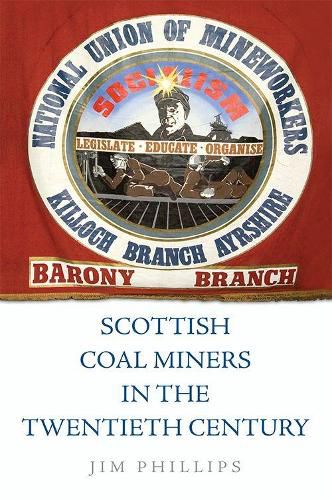Readings Newsletter
Become a Readings Member to make your shopping experience even easier.
Sign in or sign up for free!
You’re not far away from qualifying for FREE standard shipping within Australia
You’ve qualified for FREE standard shipping within Australia
The cart is loading…






Examining working class welfare in the age of deindustrialisation through the experiences of the Scottish coal miner
Throughout the twentieth century Scottish miners resisted deindustrialisation through collective action and by leading the campaign for Home Rule. This book argues that coal miners occupy a central position in Scotland’s economic, social and political history, and highlights the role of miners in formulating labour movement demands for political-constitutional reforms that eventually resulted in the establishment of the Scottish Parliament in 1999. The book also uses the struggle of the mineworkers to explore working class wellbeing more broadly during the prolonged and politicised period of deindustrialisation that saw jobs, workplaces and communities devastated.
Key features
Examines deindustrialisation as long-running, phased and politicised process
Uses generational analysis to explain economic and political change
Relates Scottish Home Rule to long-running debates about economic security and working class welfare
Analyses the longer history of Scottish coal miners in terms of changing industrial ownership, production techniques and workplace safety
Relates this economic and industrial history to changes in mining communities and gender relations
$9.00 standard shipping within Australia
FREE standard shipping within Australia for orders over $100.00
Express & International shipping calculated at checkout
Examining working class welfare in the age of deindustrialisation through the experiences of the Scottish coal miner
Throughout the twentieth century Scottish miners resisted deindustrialisation through collective action and by leading the campaign for Home Rule. This book argues that coal miners occupy a central position in Scotland’s economic, social and political history, and highlights the role of miners in formulating labour movement demands for political-constitutional reforms that eventually resulted in the establishment of the Scottish Parliament in 1999. The book also uses the struggle of the mineworkers to explore working class wellbeing more broadly during the prolonged and politicised period of deindustrialisation that saw jobs, workplaces and communities devastated.
Key features
Examines deindustrialisation as long-running, phased and politicised process
Uses generational analysis to explain economic and political change
Relates Scottish Home Rule to long-running debates about economic security and working class welfare
Analyses the longer history of Scottish coal miners in terms of changing industrial ownership, production techniques and workplace safety
Relates this economic and industrial history to changes in mining communities and gender relations